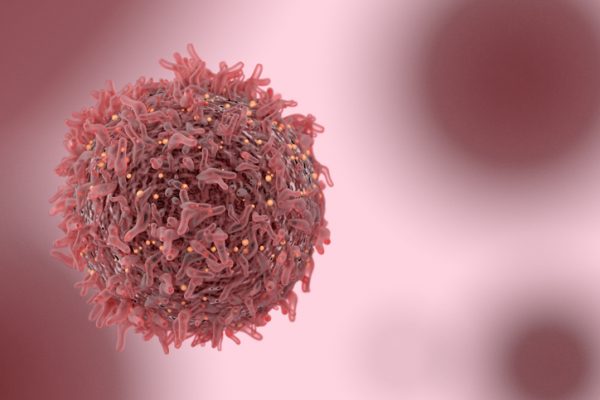
A German drugmaker has positive data on hand for its CD19-targeting monoclonal antibody in an aggressive form of lymphoma that it plans to take to the Food and Drug Administration by the end of this year.
MorphoSys – based in Planegg, near Munich – said the Phase II L-MIND study of tafasitamab, also known as MOR208, combined with Celgene’s Revlimid (lenalidomide) in diffuse large B-cell lymphoma, had met its primary endpoint. The overall response rate in the study was 60 percent, including a complete response rate – meaning percentage of patients whose disease disappeared entirely – of 43 percent. Although the study was not randomized, it also showed a median progression-free survival of 12.1 months and median duration of response of 21.7 months. Ultimately, DLBCL drugs are expected to show a benefit on the endpoint of overall survival in a randomized, controlled trial. The drug has a Breakthrough Therapy Designation from the FDA that it received in October 2017.
“The results from the primary analysis are very encouraging,” said L-MIND lead investigator Dr. Gilles Salles, who heads the hematology department at the University of Lyon in France. “We are particularly pleased to see such a high complete response rate and a prolonged response duration, which is unusual in this population of relapsed or refractory DLBCL.”
Patients in the study were mostly older and heavily pretreated, with a median of two prior lines of therapy and a median age of 72 – ranging from 41 to 87 – according to data presented at the American Society of Hematology meeting in December.
A bigger question is where the therapy will fit into the realm of other anti-CD19 treatments, particularly CAR-T cell therapies that target the same antigen. The CAR-Ts targeting CD19 approved for DLBCL are Gilead Sciences’ Yescarta (axicabtagene ciloleucel) and Novartis’ Kymriah (tisagenlecleucel). Celgene subsidiary Juno Therapeutics has another anti-CD19 CAR-T in development, lisocabtagene maraleucel. If patients have received CD19-targeting therapy, there is a risk their disease could relapse without the antigen, thereby making them ineligible for subsequent treatments targeting the antigen.
MorphoSys spokeswoman Julia Neugebauer said in a phone interview that there is not yet any data available to indicate whether patients in L-MIND have experienced CD19-negative relapse. However, she added that the patients in the study would mostly be too old and frail to receive CAR-Ts anyway. The L-MIND study excluded patients who had received prior CD19-targeting therapy.

A Deep-dive Into Specialty Pharma
A specialty drug is a class of prescription medications used to treat complex, chronic or rare medical conditions. Although this classification was originally intended to define the treatment of rare, also termed “orphan” diseases, affecting fewer than 200,000 people in the US, more recently, specialty drugs have emerged as the cornerstone of treatment for chronic and complex diseases such as cancer, autoimmune conditions, diabetes, hepatitis C, and HIV/AIDS.
In contrast with the characteristics of patients in L-MIND, patients in the study that led to Yescarta’s approval had a median age of 58 – ranging from 23 to 76 – and a median three prior therapies. Patients in the study that led to Kymriah’s DLBCL approval had similar characteristics.
The other FDA-approved therapy targeting CD19 is Amgen’s Blincyto (blinatumomab), though it is only approved for acute lymphoblastic leukemia, meaning any use in DLBCL would be off-label. Nevertheless, only about 10-15 percent of patients receiving Blincyto experience CD19-negative relapse, meaning the vast majority would remain candidates for CAR-Ts.
Photo: CGToolbox, Getty Images












